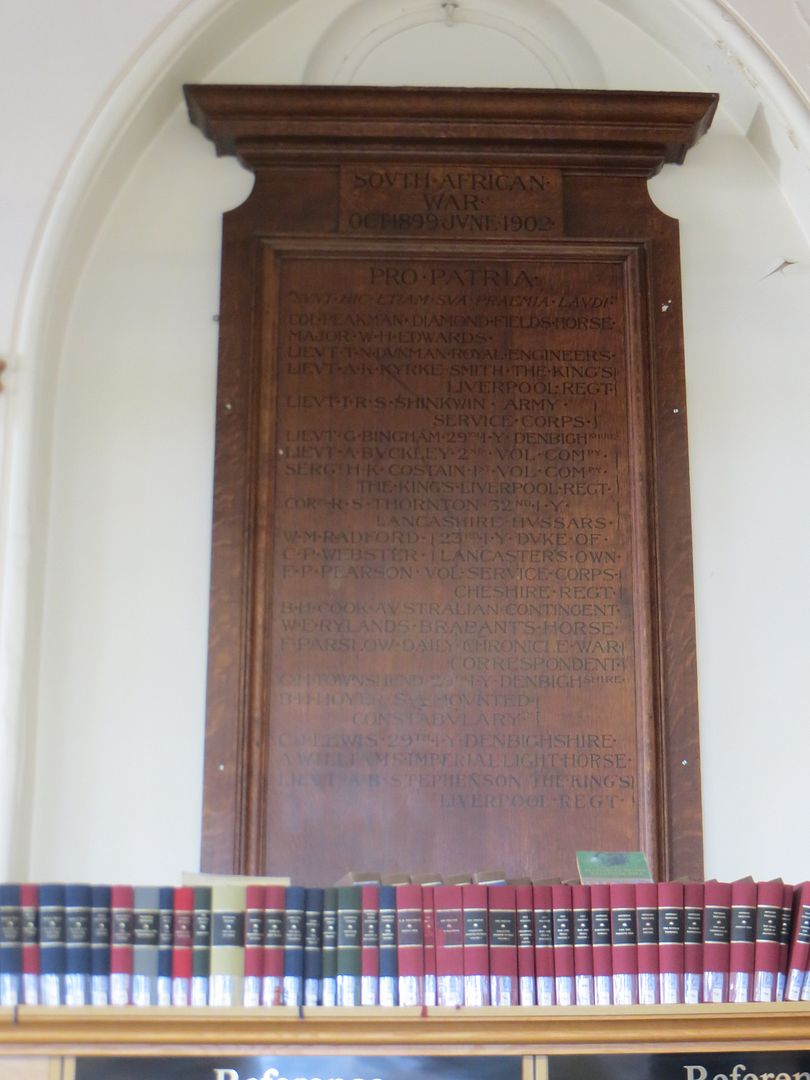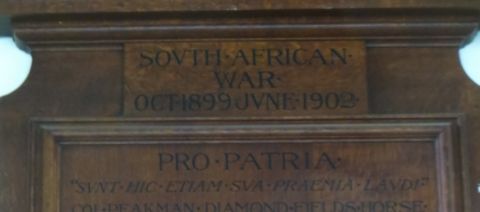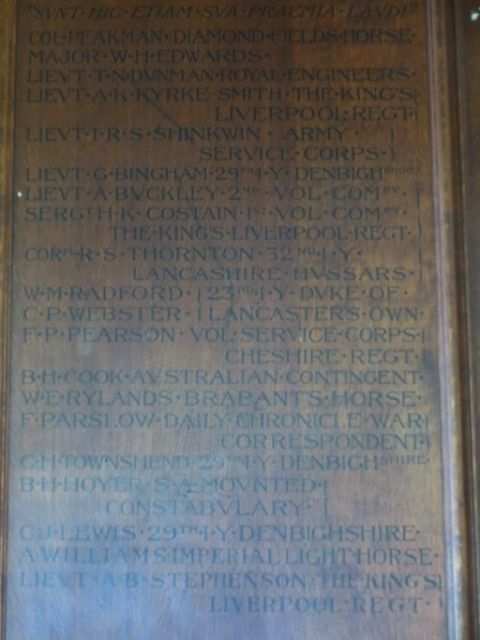In the County Palatine of Lancashire, and the administrative county of Merseyside.
My thanks to Mr. Trevor Hildrey, the school's historian, for showing me the roll of honour.
Colonel Peakman
Diamond Fields Horse
Major W H Edwards
Lieutenant T N Dunman
Royal Engineers
Lieutenant A K Kyrke-Smith
The King's Liverpool Regiment
Lieutenant I R S Shinkwin
Army Service Corps
Lieutenant G Bingham
29th Imperial Yeomanry Denbighshire
Lieutenant A Buckley
2nd Volunteer Company The King's Liverpool Regiment
Sergeant H K Costain
1st Volunteer Company The King's Liverpool Regiment
Corporal R S Thornton
32nd Imperial Yeomanry Lancashire Hussars
W M Radford
23rd Imperial Yeomanry Duke of Lancaster's Own
C P Webster
23rd Imperial Yeomanry Duke of Lancaster's Own
F P Pearson
Volunteer Service Corps Cheshire Regiment
B H Cook
Australian Contingent
W E Rylands
Brabant's Horse
F Parslow
Daily Chronicle War Correspondent
G H Townshend
29th Imperial Yeomanry Denbighshire
B H Hoyer
South African Mounted Constabulary
C J Lewis
29th Imperial Yeomanry Denbighshire
A Williams
Imperial Light Horse
Lieutenant A B Stephenson
The King's Liverpool Regiment
F. Parslow should be
E. G. Parslow, and was the school's only ABW fatality, being shot dead, in Mafeking, by a Lieutenant Murchison.
Arthur Kyrke-Smith, Frederick Phillips Pearson, and Beauchamp Hassing Hoyer are on the school's WW1 memorial, all being killed in WW1. Although Kyrke-Smith appears on both this and Bootle's rolls of honour as a Lieutenant, the Bootle Times always referred to him as being a Captain. The officers of the 4th Volunteer Battalion The King's Liverpool Regiment entertained to supper, at City Hall, Liverpool, on Monday, 22nd January 1900, the service section of the battalion who had been chosen for active service in South Africa, and Kyrke-Smith was then described as being "one of their youngest captains."




